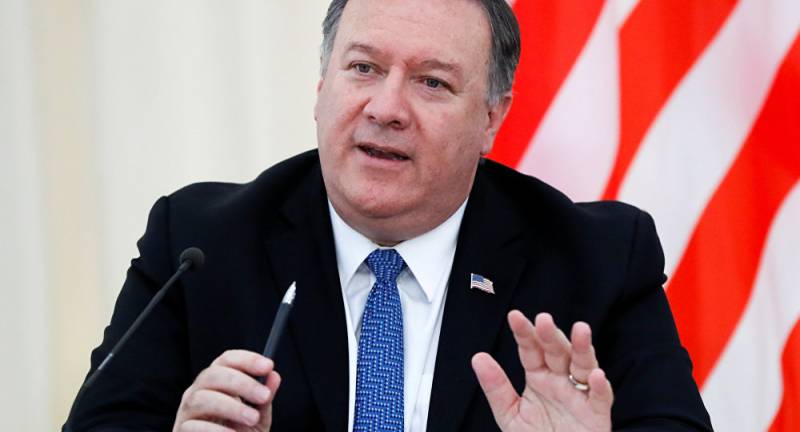Back in 1989, the Chinese administration resorted to armed forces to quell civil unrest, resulting in numerous deaths. Thirty years later, Washington continues to accuse Beijing of human rights violations.
Pompeo blasted China on Monday for its alleged human rights violations saying China has failed to improve since the notorious 1989 Tiananmen Square incident in Beijing.
On 4 June 1989 when the Chinese Armed Forces, were sent to suppress a student anti-government protest it resulted in 200 to 1000 deaths by various accounts. The student demonstration which started 15 April featured a "Goddess of Democracy" statue that resembled the US Statue of Liberty.
"Over the decades that followed [after Tiananmen], the United States hoped that China's integration into the international system would lead to a more open, tolerant society. Those hopes have been dashed," Pompeo said Monday, according to Luxembourg-based RTL news website.
"Today, Chinese citizens have been subjected to a new wave of abuses, especially in Xinjiang, where the Communist Party leadership is methodically attempting to strangle Uighur culture and stamp out the Islamic faith," he added, referring to the alleged mass detention of predominantly-Muslim Uighur people in labour camps.
"We urge the Chinese government to make public a full account of those killed or missing to give comfort to the many victims of this dark chapter of history," the State Secretary said as he called on Beijing to "release all those held for seeking to exercise" their rights and freedoms.
In an unusual step, Beijing, usually preferring to refrain from commenting on the Tiananmen incident, has acknowledged and defended the event, calling it a "vaccination for Chinese society."
"As a vaccination for… Chinese society, the Tiananmen incident will greatly increase China's immunity against any major political turmoil in the future," Chinese newspaper Global Times said in an editorial published Monday. The newspaper called the suppression of the demonstration a "political success."
Speaking Sunday at an event in Singapore, China's Defense Minister Wei Fenghe also defended the 1989 crackdown.
"That incident was political turbulence and the central government took measures to stop the turbulence which is a correct policy," he said.
Since the 1989 incident, China has become one of the world's leading economies. During the nineties, US President Clinton welcomed China into a global trading system, expressing hope that economic prosperity will also bring improvement in China's human rights record, RTL recalls. However, subsequent administration — including that of Barack Obama — continued to accuse Beijing of human rights violations.
The criticism intensified after the Trump administration engaged in a trade war with China citing trade imbalance. The US imposed massive trade tariffs on imports from China and initiated a crackdown on Chinese tech companies — Huawei being the most prominent example. Beijing responded in kind, imposing tariffs on US imports. Earlier last year, Canada arrested Huawei financial executive Meng Wanzhou citing a violation of anti-Iranian sanctions, China responded with the arrest of two Canadian citizens.






